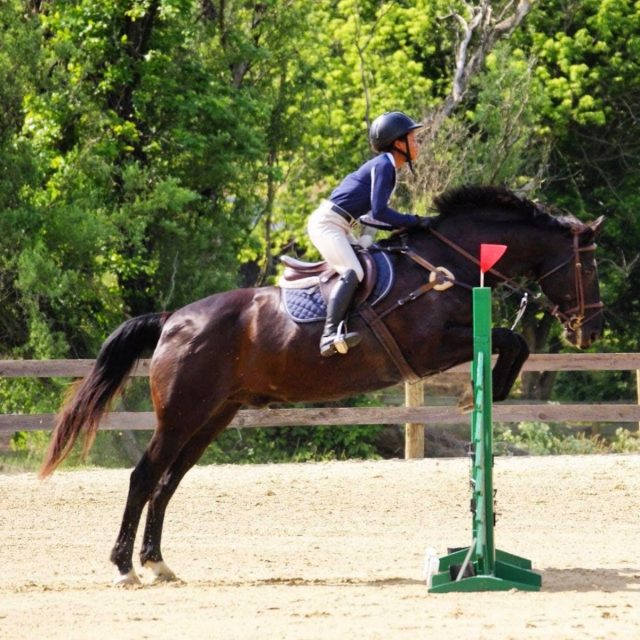In summer 2020 we launched a 1st Annual $5,000+ Diversity Scholarship with the support of generous donors, inviting minority equestrians to contribute to the discussion of diversity and inclusion in equestrian sport. It is the mission of this annual bursary, which we intend to expand in coming years, to call for, encourage, elevate and give a platform to minority voices in a space where they are underrepresented.
How do we build a more diverse, inclusive and accessible sport? In the coming weeks we will explore this question alongside many of the 27 Scholarship recipients as they share with us their essays in full. Collectively, their perspectives coalesce into a body of work that will no doubt help inform a viable path forward for equestrian sport, and we are committed to connecting their actionable ideas with the public as well as leaders and stakeholders of the sport.
Today we welcome Jordyn Hale. More voices: Caden Barrera | Madison Buening | Anastasia Curwood | Deonte Sewell | Dawn Edgerton-Cameron

My name is Jordyn Hale and I am African American and an equestrian of 12 years. I have been riding horses since the age of 7. I first started out in a hunter barn filled with other kids my age. I never felt singled out because of my skin color. I had supportive friends and parents and felt like I fit right in with everyone else. I worked hard like everyone else and had the same opportunities.
I eventually made the switch to eventing around 12 years old. At this point I recognized that there was a lack of people who looked like me in the sport. I started feeling more self-conscious about how I presented myself out at competitions and schooling events. I felt like I had to be perfect as the only black person competing in the area. The pressure to be perfect took a toll on me and riding became less fun. I felt like I was only still riding because it was something I had to do, since my parents have spent so much time and money on it.
It wasn’t until joining Pony Club and competing at rallies that I began to have fun riding again. I met many people that helped me become a better horsewoman and did not look at me as “the black girl who rides.” They saw me as one of their peers. I am grateful to have a trainer that pushes me to move out my comfort zone and wants to see me do great things. I am even more grateful to have such an accepting horse community around me.
Get involved: Jordyn’s essay speaks to the power of community. The United States Pony Club‘s mission statement is “to promote sportsmanship, stewardship and leadership through horsemanship,” and we see this focus on not just riding, but character development and life skills, in organizations like 4-H and the US Equestrian Interscholastic Athlete Program as well.
We are so glad that Jordyn didn’t stop riding before she found the piece of riding that was missing for her, a sense of inclusion. And we’ve loved seeing Pony Clubbers and Pony Club chapters double down on their diversity efforts these past few months. (Middle California Region, you guys rock!)
Jordyn strikes us as possessing the qualities 4-H CEO Jennifer Sirangelo described in last week’s Opportunity4All Youth Forum: “For any problem this big it takes a powerful solution. What gives me hope is the resilience, creativity and determination of America’s young people. Their ability to solve challenges and lead when given the chance is what is going to help our country create opportunity for all.”
It is our responsibility as adults, she says, to show up as allies and mentors who can lift up youth voices and empower them to address the challenges they face head-on: “At National 4‑H Council, we will always believe in them, we will always tell their stories, and we will always work to create opportunities for those hardest to reach and who need us the most.” Learn more about the 4-H’s excellent Opportunity4All campaign here.
Today we challenge you to reach out to a youth equestrian organization and ask how YOU can help them in their efforts to create a diverse and inclusive community. Do it for Jordyn and all the youth, with their “resilience, creativity and determination,” who truly embody the future of not only our sport but our society.
Nation Media wishes to thank Barry and Cyndy Oliff, Katherine Coleman and Hannah Hawkins for their financial support of this Scholarship. We also wish to thank our readers for their support, both of this endeavor and in advance for all the important work still to come.




















